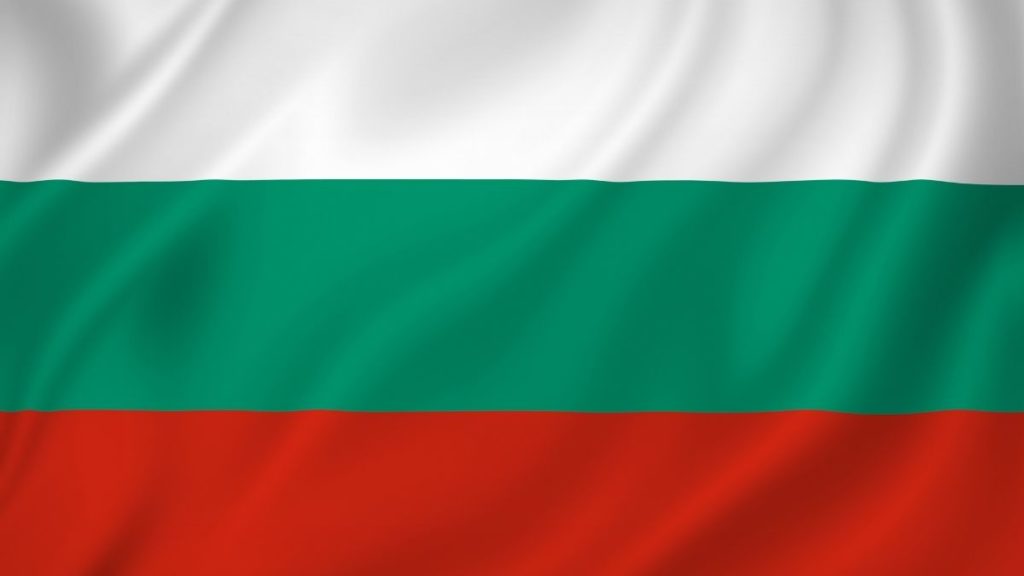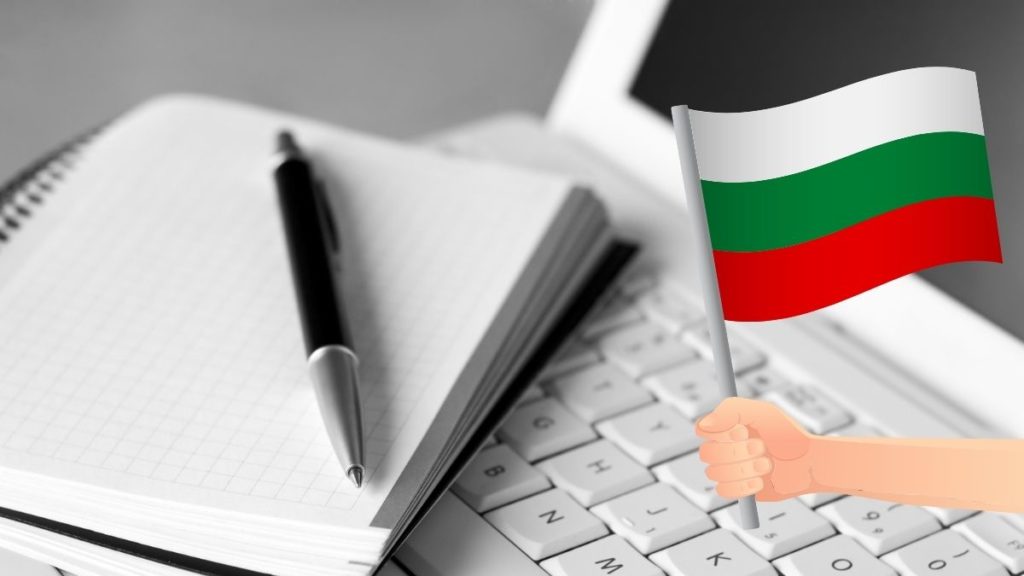Bulgarian has a reputation for being a hard language to learn but how hard is it actually?
In reality, it’s not impossible to learn Bulgarian and is much easier than you think.
Let’s take a look at all the reasons why people think Bulgarian is hard to learn and how you can make it easier.
We’ll also discuss how long it takes to learn Bulgarian for an English speaker.
Table of Contents
Is Bulgarian Hard To Learn?

Bulgarian isn’t impossible to learn but it is harder to learn than some other languages for English speakers.
The Foreign Service Institute has spent decades teaching foreign languages and over the years has ranked them in terms of difficulty.
The categories start from category I, which includes easy languages like French and Spanish, and go to category IV, which includes super hard languages like Mandarin Chinese and Japanese.
Bulgarian falls within category III in terms of difficulty. This means that Bulgarian is harder to learn than French, Spanish and German but easier to learn than Chinese or Japanese.
Bulgarian is roughly just as difficult to learn as Russian and Polish.
What Makes Learning Bulgarian Hard?

Whilst there are things you can do which makes learning Bulgarian easier (discussed later), Bulgarian does have many complex features that make it hard to learn.
I’ve discussed the main ones below.
Cyrillic Alphabet
Whilst English uses the Latin alphabet, Bulgarian uses the cyrillic alphabet like Russian. This can seem very daunting at first if you don’t know how to read it.
There’s lots of great tools online that can help you master it and once you’ve learnt the sounds of each letter, you’ll pick it up over time with lots of practice.
Below is some sample Bulgarian text, looks difficult right!?
Всички хора се раждат свободни и равни по достойнство и права. Те са надарени с разум и съвест и следва да се отнасят помежду си в дух на братство.
Whilst the script does look complicated at first, it’s much easier to learn than other more complicated scripts like those used in Chinese and Japanese.
Difficult Grammar
Bulgarian grammar is fairly difficult for English speakers to master.
One positive is that, unlike most other Slavic languages like Russian, Bulgarian doesn’t use the case system which is notoriously complex.
Bulgarian does have other complex grammar concepts though including 3 genders (masculine, feminine and neuter) and complicated verb conjugations.
When dealing with genders, all adjectives, pronouns, articles and adverbs need to agree in gender.
The default word order in Bulgarian is subject + verb + object which is the same as English. The only difficulty is that this word order is not always followed so you will have to get used to these inconsistencies.
Unfamiliar Vocabulary
Unfortunately Bulgarian doesn’t use many English loanwords at all.
Having English loanwords can be an advantage when learning other languages like Spanish because you will already recognize many words immediately.
There are a few English loanwords in Bulgarian that you may come across like са́ндвич (sandvich) which means ‘sandwich’ if you hadn’t already guessed.
However, the majority of loanwords in Bulgarian come from other Slavic languages like Russian so you won’t have much of a head start as an English speaker.
Speakers Of Bulgarian
One thing that makes Bulgarian difficult to learn is that it is not widely spoken. There are only approximately 8 million speakers of Bulgarian in the world.
When learning a language, one of the best and most important ways is to immerse yourself in the language and practice with native speakers as often as possible. This can be very difficult with Bulgarian if you don’t live in Bulgaria.
If you do live in Bulgaria or in another community with native Bulgarian speakers then this shouldn’t be an issue for you.
What Makes Learning Bulgarian Easier?

There are a few things that do actually make learning Bulgarian much easier. I’ve summarised them all below.
Language Families
English and Bulgarian are both part of the Indo-European language family.
English falls within the West Germanic branch of this family whereas Bulgarian falls under the South Slavic branch.
As Bulgarian and English are part of the same language family this means they both descended from the same ancestral language known as the Proto-Indo-European language.
Learning languages from the same language family tends to be easier as these languages share many similar characteristics with one another.
The similarities vary between languages but can include vocabulary, word order, grammar, pronunciation and word composition.
English and Bulgarian do share some similarities, however Bulgarian is much more closely related to other Slavic languages. Bulgarian is more similar to Russian and Polish than English.
Bulgarian Is Phonetic
Once you’ve learnt the cyrillic alphabet you’ll be pleased to know that Bulgarian, as a whole, is a very phonetic language.
This means that words sound like they’re written which can’t be said for all languages – I’m looking at you English (though, through, tough, thorough).
This is great as you’ll find pronunciation easy and you can say new words correctly without fear that you’re saying them wrong.
In addition, all of the sounds that are used in Bulgarian also exist in English so you should find pronunciation relatively straight forward.
No Cases
Most Slavic languages use grammatical cases.
Cases are a feature of languages where the ending of a word changes to indicate the role that the word plays in the sentence.
Cases are notoriously difficult. For example, in Russian each noun that you learn will have 12 different variations.
Luckily, Bulgarian doesn’t use cases at all so you don’t have to worry about this. Despite being a Slavic language, the case feature was lost when Bulgaria was ruled by the Ottomans.
This makes Bulgarian easier to learn in some aspects than other Slavic languages like Russian and Polish.
Knowing A Similar Language
Learning Bulgarian will be much easier if you speak another similar language.
The most closely related languages to Bulgarian are Macedonian, Russian and Serbo-Croatian.
If you happen to also speak one of these languages then learning Bulgarian will be very easy for you.
How You Can Learn Bulgarian Easily

Learning Bulgarian is made much easier with good quality courses and resources. Below I’ve listed the best ones which will make learning Bulgarian easy!
Glossika Bulgarian
Glossika is a great resource for building up vocabulary and learning to speak the language fluently.
The best thing about Glossika is that they help you to acquire the language (rather than memorizing).
It’s a fun, easy and effective way to learn Bulgarian.
Bulgarian Textbook
If you’re looking for a standard textbook to help you with Bulgarian then the Teach Yourself Bulgarian book is one of the best out there.
If you also want to be able to read and write in Bulgarian then you’ll need a textbook like this one.
It’s a great reference point and explains the language in clear, easy to understand terms.
BulgarianPod101
BulgarianPod101 is a great resource for someone looking to learn Bulgarian fluently.
They feature both audio and video lessons recorded by Bulgarian teachers who will explain everything to you in simple terms. They also have word lists and flashcards to help you study.
How Long Does It Take To Learn Bulgarian For An English Speaker?
On average it would take about 1100 hours or 44 weeks to learn Bulgarian for an English speaker.
This is based on the language classification system created by the Foreign Service Institute.
The Foregin Service Institute has several language categories that categorize how long it takes for a student to reach ‘professional working proficiency’ in a language.
They have put Bulgarian into category III which they describe as ‘hard languages’ which are ‘languages with significant linguistic and/or cultural differences from English’.
Other languages that fall into this category include Russian, Polish, Turkish and many more.
1100 hours or 44 weeks is the average time that it takes students to learn to speak Bulgarian, however this can vary depending on many factors.
This assumes you do 25 hours of studying a week. If you’re not able to dedicate this much time to learning Bulgarian it may take you longer.
Your progress may actually be much faster if you already speak a similar language such as Russian, Serbo-Croatian or Macedonian.
Is Bulgarian Worth Learning?

The answer to whether Bulgarian is worth learning is really up to you.
As I mentioned previously, it would take you roughly 1100 hours or 44 weeks to learn Bulgarian. This is a lot of time and effort and you have to have a lot of motivation and discipline to achieve this.
If you do decide to learn Bulgarian you will get a lot out of it.
Bulgarian is spoken by around 8 million people around the world, mainly in Bulgaria. The Bulgarian people are known to be super friendly and accommodating and will be more than happy to help you with their language.
By learning Bulgarian you would be able to communicate with 8 million people and enjoy their vibrant and interesting culture. This can range from movies, TV shows, music, books and much more.
Bulgaria also has a fascinating history and has been home to a huge variety of civilizations over the years including the Ottomans, the Romans, the Greeks and the Russians.
Bulgaria is a stunning country with so much to offer from the vibrant capital of Sofia to the picturesque coastline of the Black Sea.
Learning Bulgarian will allow you to experience Bulgaria to the fullest.
Related post: Is Bulgarian A Dying Language?
If you’re interested in learning Bulgarian why not start by learning how to say hello in Bulgarian.
Check out our other Bulgarian content here.
Related Posts:
